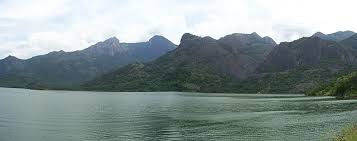The Tamil Nadu government has decided to move ahead with its ambitious ₹11,721 crore Aliyar Pumped-Storage Power Project, despite strong objections from Kerala. The Tamil Nadu Infrastructure Development Board (TNIDB) has already invited applications for a transaction advisor, signalling that the state is determined to proceed with the 2,400-MW project under a public-private partnership (PPP) model.
The Aliyar project, planned along the Aliyar River in the Bharathapuzha basin, aims to generate electricity by utilising the height difference between the Upper and Lower Aliyar reservoirs. It will produce power during peak demand hours — expected to operate for six hours daily. Tamil Nadu considers the initiative a key step toward enhancing its renewable energy storage capacity and ensuring stable power supply.
Kerala, however, has raised serious objections. On October 18, Additional Chief Secretary Biswanath Sinha wrote to Tamil Nadu expressing concern over possible impacts on downstream water flow and Kerala’s water entitlements under the Parambikulam–Aliyar Project (PAP) Agreement.
Under the existing PAP terms, Tamil Nadu must release 7.25 TMC (thousand million cubic feet) of water annually to the Chittoor River through the Mankadavu Weir. Kerala fears that the new pumped-storage scheme could alter water availability and violate the spirit of the inter-state pact.
The project underscores a growing conflict over inter-state river management and water-sharing rights in southern India. Kerala has accused Tamil Nadu of bypassing consultation procedures and proceeding unilaterally, calling it a potential breach of the PAP Agreement.
Meanwhile, Tamil Nadu views the project as a vital energy infrastructure upgrade that could help balance grid demand and strengthen power reliability. Officials argue that the PPP model will attract private investment and fast-track implementation.
Kerala’s Water Resources Minister Roshy Augustine confirmed that the state is awaiting Tamil Nadu’s official reply. He added that if the issue is not resolved through dialogue, Kerala may approach the Central Water Commission or even the Supreme Court of India to protect its rights under the agreement.
The Aliyar dispute, experts say, could emerge as another flashpoint in India’s complex web of inter-state water-sharing challenges — balancing the twin goals of development and equitable resource management.




